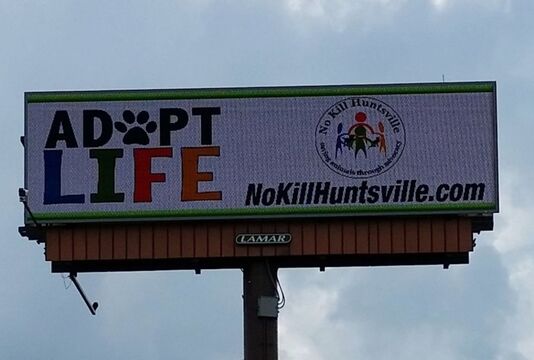|
Animal shelter reform advocacy is tough work. It can consume every day of the week with no days off. It can lead to the loss of long-time contacts and even some people we once considered friends. It can be mentally exhausting as common-sense principles are shared with people who are so personally invested in the status quo that they would rather continue ending the lives of healthy and treatable animals than listen. Just listen. It can be emotionally draining as those intent on defending the killing focus not on the message but on the messenger, as if they are somehow responsible for the fact that the words "please stop killing healthy and treatable animals" have to be said in the first place. I first began advocating for animal shelter reform in 2006 after the loss of our dog Snake. We had her euthanized to keep her from suffering. We know exactly what the word "euthanasia" means so when I learned almost 20 years ago that healthy and treatable animals were being killed in places called "shelters" and they were calling it euthanasia, I knew that was all kinds of wrong. Almost 20 years into this venture, I continue to learn more with the passage of time and I have had my mind changed on some subjects along the way as I have educated myself or been educated by others. I am fully capable of saying, "I was wrong. Thank you for helping me see a new point of view." I have heard before that advocacy to try to reform animal shelters is a marathon and not a sprint. To the extent we talk about national trends, I fully agree with that statement. Times change, people change, values change. In the 1970s, shelters were ending the lives of some 16 to 17 million animals each year. Let that one sink in. 16 to 17 million. By the end of the 1990s that number was down to about 7 to 8 million. It is now less than 1 million animals each year which is still way too many. As is the case with many social movements in our country, change never happens as fast as we would like as it can take decades to see progress. We do best to keep ourselves updated not only on the latest methods being used at progressive animal shelters like the Lake County Florida Animal Shelter and the Humane Society of Fremont County in Colorado (which holds a dozen municipal contracts), but also on how some former leaders in our movement have lost their way and tried to take the public with them. It is hard enough to try to persuade antiquated shelter systems to change. That process is made twice as hard when people lose sight of what works well and instead focus on their own form of celebrity as advocates. Dangerous things can happen for our communities and the animals we love when conversations best shared over too many glasses of wine are instead put forth as viable operational methods. When it comes to local advocacy, I've had a change of heart as it relates to the "sprint not a marathon" description. It is neither, at least in my world. I had my first meeting with the mayor of the city in which I work in January of 2009 after having written to him following the municipal election in 2008. I said, "we can do better" and he wanted to talk about that. When I was not able to affect change on my own after we met, I formed an advocacy coalition in January of 2012. We are in our 12th year of advocacy which has had mixed results. The most intense period of our advocacy began in 2013 after the city refused free help from subject matter experts and we took the issue to the public which was paying attention. We had the attention of the community, a large following on social media and our website and support from local television and print media. We held events, we sold t-shirts and car magnets, we rented electronic billboard space, and we got time on the local public radio station. We were on a roll. That intense period lasted through about 2018 when the city began making changes to the shelter operation and we finally saw improvement in the live release rate which had gone from 49% for dogs and 30% for cats in 2012 to 90% for dogs and 95% for cats in 2018. We knew the city could do even better so our advocacy continued as we promoted our first version of the Huntsville Animal Protection Act and kept pressure on city officials to hold them accountable. The city hit a high for the live release rates at the end of 2021 when the dog live release rate was 94% and it was 96% for cats. We felt pretty good about what we had accomplished even though it had been a very difficult time for all of us balancing advocacy with our jobs and our personal lives. As we feared may happen, the progress achieved was not sustained. The city was able to make some progress by embracing some programs we promoted, but never did fully embrace them all. We now see declines in the live release rate which each passing month. We don't believe a time will ever come when the city reverts to the amount of population control killing it engaged in when I first met with the mayor (33% for dogs and 13% for cats). At least we hope not. We have struggled as a group to stop this gradual decline and have ultimately come to the conclusion that we cannot. We led the horse to water and he had a drink, but he ultimately walked away and nothing we could do could force him to cooperate. We are currently promoting a new version of the HAPA, almost half of which relates to how the shelter makes decisions about "euthanasia" and "behavior dogs" but are not confident it will get much further than a corner of a desk in the city attorney's office. Our communication with members of the city council is more often than not met with replies to the effect that the shelter is doing all that it can to save animals when we know that is just not true. It is easy for any shelter to blame poor performance on the pandemic or the economy or some other issue but those excuses don't work in this particular city that continued to thrive during a 3-year public health crisis, has an incredibly low unemployment rate, was named the top place in the nation to live a year ago and was rated the second best place to live in the nation recently. All advocacy has value, but I have come to believe when it comes to local animal shelter reform advocacy, it is not a sprint or even a marathon. The passage of time takes a toll not only on the advocates themselves, but on the ability of city officials to hear us. In our last meeting with the city administrator last summer, he tolerated us at best and loathed us at worst, in spite of our attempts at diplomacy. Members of the city council who once applauded our efforts have less time - and no doubt less patience - for us as we repeat ourselves over and over, imploring the city to at least try the things we have been recommending in some cases for 10 years. Sometimes I feel like a child in the back seat of a car on a long ride asking, "are we there yet" Are we there yet? Are we there yet?" I stand by what we did because it worked. We were the impetus for change which could have and should have been sustained. I genuinely believe that but for our advocacy, little would have changed and the shelter would still be destroying about half of all animals entering the building.
Local animal shelter reform advocacy is a relay. We have carried the baton for more than a decade as others have tried to beat us with it. I now believe it is time for new voices to be heard whom we hope can build on what we tried to create. We will see the process through with the HAPA. If we can't get enough members of the city council on board after meeting with them for a year, we will have our answer. We know we cannot force the city to change through some form of magical thinking. Sometimes trying hard just is not enough. We wish those who follow in our footsteps the best. All communities are capable of becoming No Kill communities. But not all communities are ready. Enough people have to be angry enough to speak out about what they want from those who govern them and enough elected officials have to be able to listen. Just listen.
1 Comment
|
AuthorI am an animal welfare advocate. My goal is to help people understand some basic issues related to companion animals in America. Awareness leads to education leads to action leads to change. Archives
July 2024
Categories
All
image courtesy of Terrah Johnson
|



 RSS Feed
RSS Feed